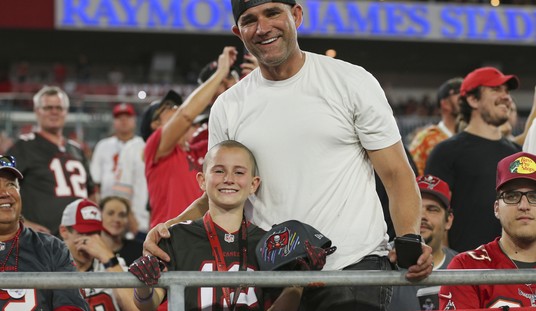Speaking at the Faith and Freedom Coalition conference in Washington on Friday, Rick Santorum offered criticism of the campaign that bested him in the 2012 GOP primary, but wound up losing the general election:
One after another, they talked about the business they had built. But not a single factory worker went out there. Not a single janitor, waitress or person who worked in that company! We didn’t care about them. You know what? They built that company too! And we should have had them on that stage.
When all you do is talk to people who are owners, talk to folks who are Type A’s who want to succeed economically, we’re talking to a very small group of people. No wonder they don’t think we care about them. No wonder they don’t think we understand them. Folks, if we’re going to win, you just need to think about who you talk to in your life.
Taking stock of Santorum’s advice that Republicans should “talk to the folks who are worried about the next paycheck” instead of just CEOs, Politico judges that he wants to “carve out a role as a leading populist in the 2016 field.”
Sometimes it’s tough to measure where “populism” truly begins, but these remarks sound more like generally good advice for conservatives. Certainly the successful politician makes everyone in the electorate feel as though he has something to say to them. We’re working with an electorate that very much wants to believe in a bottom-up world, where the needs and contributions of the Little Guy – which most voters see themselves as, even when they’re fairly well off – are exalted.
That’s always been broadly true, but it’s particularly important now, after years of effort have convinced the Little Guys that everyone else is out to get them. Talk of opportunity and growth is not an easy sell to people who think somebody else gets all the good opportunities and enjoys the fruits of growth. And the Left has done an amazingly effective job of convincing them to ignore the predatory habits and greed of the political class – the people with six-figure jobs, fantastic benefits, and lifetime bureaucratic sinecures of dubious importance. The biggest, meanest, most aggressive special interest of all is the State, but that’s not what people tend to think about when the devil words “special interest” are spoken.
Our culture values identification and sympathy. Pollsters ask many questions of the electorate, but the candidate who seems to “understand” middle-class life best is the one who usually wins the election… even though almost every national candidate from both big parties is very far removed from living a middle-class lifestyle. Empathy is the stand-in for all other character traits. It’s the only one people feel free to pass judgment upon, without fear of being seen as judgmental.
Symbolism is important, too. As Santorum observed, it matters that a candidate secures the endorsement of average people and puts a spotlight upon them. This is really Politics 101, but somehow a lot of Republicans have forgotten it, deeming it silly or condescending. (Or maybe they’re worried their opponents will label them condescending.) It’s not that the Romney campaign was utterly devoid of such supporters, but he didn’t use them effectively. And he had a tendency to say things that played into his biggest weakness, like the “47 percent” comment, or his observation that he was “not concerned about the very poor.” There was more to the context of these remarks than the killer sound bites extracted by the media and Obama’s campaign team… but when will Republican candidates learn that they don’t control the transmission of “context?”
In fact, that “I’m not concerned about the very poor” comment of Romney’s came in the course of a statement that was very much in line with Santorum’s advice. Romney’s full remarks, delivered the morning after he won the Florida primary, went as follows:
I’m in this race because I care about Americans. I’m not concerned about the very poor. We have a safety net there. If it needs repair, I’ll fix it. I’m not concerned about the very rich, they’re doing just fine. I’m concerned about the very heart of America – the 90, 95 percent of Americans who right now are struggling, and I’ll continue to take that message across the nation.
That message did not get taken across the nation, not effectively enough. And it’s a fundamental mistake to break the country down into income classes and declare ourselves eager to improve the lot of this group, while that group is doing just fine. It’s all interconnected. A rising tide lifts all boats… and you can’t lift all boats without a rising tide.
What the American people need to understand most urgently is that prosperity cannot be conjured into existence by fiat. It’s not waiting for the proper combination of taxes and subsidies to unlock it. No small, centralized group can devise a formula for achieving it. We’re not going to get anywhere by diverting our economic strength into endless subsidies for junk that doesn’t work, because it’s ideologically agreeable, or owned by people with great political connections. People are learning to be satisfied with less, as long as they believe their basic needs are guaranteed.
We really should be a Type A nation, brimming with ambition and confidence. Too many of us have been taught to feel guilty about our ambitions, and fear the ambitions of others.












Join the conversation as a VIP Member